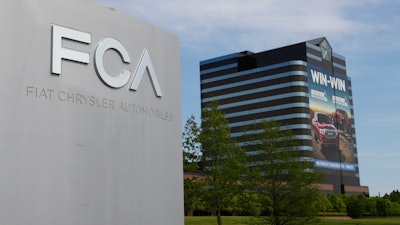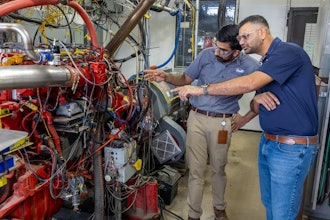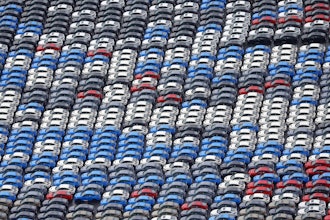
DETROIT (AP) — A federal judge in Detroit has tossed out General Motors’ lawsuit alleging that Fiat Chrysler paid off union leaders to get better contract terms than GM.
In a ruling Wednesday, U.S. District Judge Paul Borman wrote that GM’s alleged injuries were not caused by FCA violating federal racketeering laws. He wrote that GM has not stated a claim that can be granted, and that the people harmed by the bribery scheme were Fiat Chrysler workers.
GM said it disagreed with the ruling and will pursue legal remedies.
In a 2019 lawsuit, GM alleged that Fiat Chrysler bribed officials of the United Auto Workers union to get lower labor costs, giving FCA an advantage over its Detroit-area rival. GM alleged that FCA CEO Sergio Marchionne wanted to pressure GM into merging by weakening GM with higher costs.
Borman wrote in his ruling that GM's “pay to harm” theory initially had appeal “but fails on a closer look.”
GM alleged that FCA used bribes to get the UAW to deny GM concessions that were given to Fiat Chrysler. But Borman wrote that the UAW wouldn't give the concessions to any company that didn't pay bribes. Therefore, GM's labor costs weren't any higher than they would have been without the bribes.
“In other words, FCA’s UAW workers were the direct victims of the bribes because they were paid less, and GM suffered only an indirect competitive harm,” Borman wrote.
GM failed to show facts backing up the claim that it was directly harmed by Fiat Chrysler's actions as required under federal racketeering laws, Borman ruled.
The union has continually denied any link between the payments and contract negotiations, and FCA has denied that it directed any payments. Its former labor chief, Al Iacobelli, is in prison after pleading guilty in 2018 to conspiracy and tax crimes in a scheme worth more than $1.5 million.
In its lawsuit, GM cited government sentencing documents in Iacobelli’s case alleging that bribes were an effort to get concessions and advantages for Fiat Chrysler.
“These allegations support the inference that defendants’ intent was to lower FCA’s labor costs by inducing UAW officials to act against the interests of workers, not the inference that defendants wanted to increase GM’s labor costs,” Borman wrote. “The few paragraphs of the complaint that even mention an intent to harm GM are vague and conclusory.”
Erik Gordon, a University of Michigan law and business professor, said GM may have a case on appeal even though racketeering cases are difficult to prove. GM, he said, was harmed by a competitor having lower labor costs.
“The harm seems like an unfair competitive advantage as a result of bribes,” he said. “If two gymnastic teams are competing and one bribes the judges, does it matter if the judges give the briber more points or give the other team less points?”
GM said in a statement that there is enough evidence from guilty pleas by former FCA executives to show it was involved in racketeering that directly harmed GM. Fiat Chrysler said the case is meritless and the dismissal backs that position.
Ten union officials have pleaded guilty in a widening UAW embezzlement and bribery scandal, with some spending thousands in union money for golf, lodging and fancy meals.
Among the officials to plead guilty is former President Gary Jones, who was accused of conspiring with UAW associates to embezzle more than $1 million. The government said union money was spent on golf, cigars, spas, high-end lodging and booze.
Former President Dennis Williams has not been charged in the case, but his California home was raided by federal agents last summer.
Earlier in the GM case, Borman described the lawsuit as a “waste of time and resources” for years if he allowed it to move forward. That prompted GM to ask an appeals court to change judges.
On Monday, the appeals court overturned Borman’s order that the CEOs of both companies meet in person to talk about settling the case. But the court refused to assign the case to another judge.






















